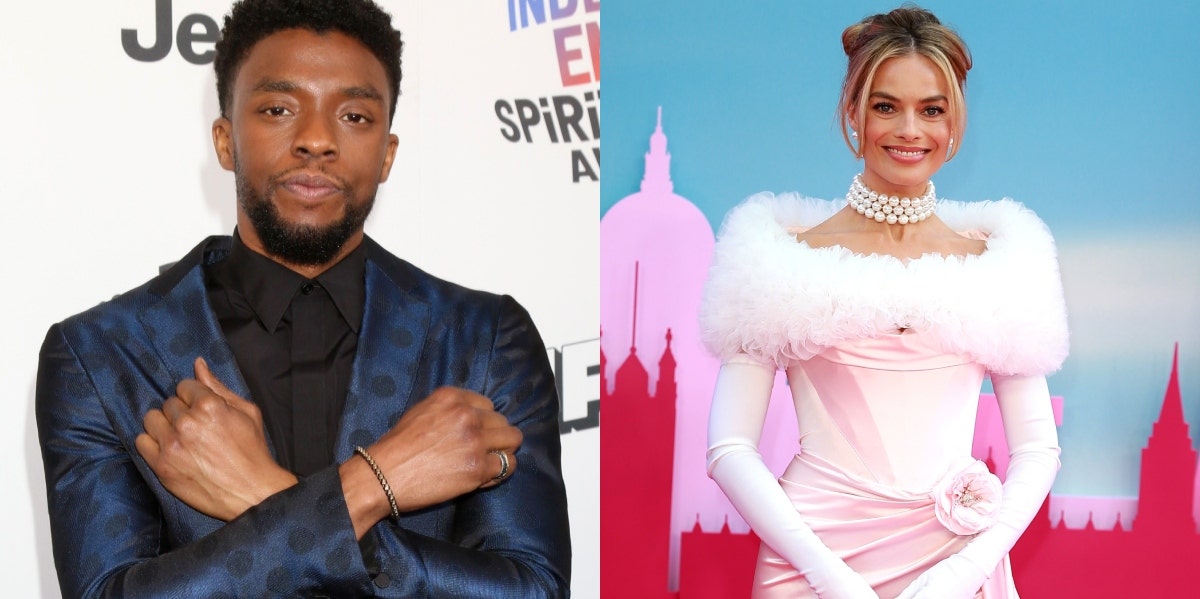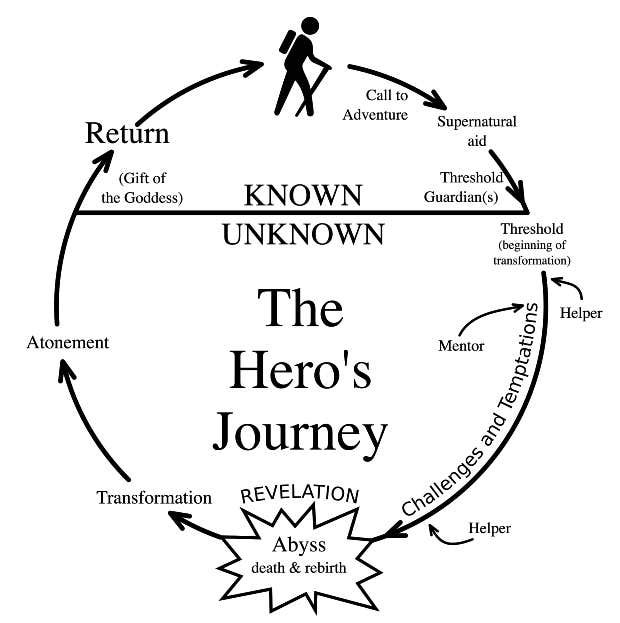The Similarities Between 'Black Panther' & 'Barbie' Shows The Universality Of The Human Experience
No, the Barbie movie didn't 'copy' Black Panther.
 Kathy Hutchins, Fred Duval / Shutterstock
Kathy Hutchins, Fred Duval / Shutterstock Greta Gerwig's 2023 film 'Barbie' has grossed over $1 billion since its theatrical release, making it the highest-grossing film this year thus far and one of only 50 movies to ever do so. Amidst its unprecedented success, people have surprisingly compared 'Barbie' to another billion-dollar box office hit: 'Black Panther.'
The comparison unfolded through a joke on the Rooster Teeth Podcast from host Andrew Rosas. "'Barbie,' or 'Black Panther' for white b------, opened this weekend," he declared to much laughter from his co-hosts. Rosas' comedic take on the subject, though lighthearted, prompted a deeper examination.
The similarities between 'Black Panther' and 'Barbie' show the universality of the human experience.
Alex of Pop Culture Brain, a TikTok user known for covering pop culture, delved into the nitty gritty of what makes these two films so similar.
"I love that movie about the hero who lives in a secret land of magic and powerful women," he started, drawing similarities between the two films' protagonists and settings. "Their realm has been intentionally secluded from the rest of the world, though you can enter the secret realm via certain modes of transportation."
In the 2018 Marvel epic, people can enter Wakanda by flying a plane into a specific location, allowing you to enter through the country's invisible barrier. Meanwhile, in "Barbie," the reasoning is a bit less sci-fi oriented. Instead, you need to take a number of different modes of transportation, including but not limited to a boat, a bike and a car, to get to Barbieland.
According to Alex, both films tell the story of a hero inhabiting an intentional paradise, isolated from the world's turmoil. And when they leave, they are faced with "questions about their society and why its systems are set up the way they are."
Then, in both films, comes the central conflict.
"A usurper with knowledge of the outside world takes over the magical land, and he has all kinds of new ideas about how they should run things," he said.
In "Black Panther," the antagonist Erik Killmonger, portrayed by Michael B. Jordan, is already an outsider because he was raised in New York despite being of Wakandan blood. On the other hand, the usurper in "Barbie," Ken, portrayed by Ryan Gosling, only gets his outsider knowledge after he leaves Barbieland.
Regardless, both stories contain the drama of a usurper's rise to power, his subsequent fall, and the hero's struggle to restore equilibrium.
"The hero convinces everyone that the usurper's ideas were mostly wrong, but they do incorporate some of his principles to make a more just society. The hero then takes steps to become a presence in the outside world. Great movie," Alex concluded.
In "Black Panther," T'Challa, Chadwick Boseman, goes before the United Nations to reveal his desire for Wakanda to be integrated with the rest of the world — partially taking from Killmonger's desire to break away from Wakanda's isolationist philosophy.
While Barbie, Margot Robbie, allows the Kens to have some governmental power in Barbieland after she quells Ken's insurrection.
So, did 'Barbie' copy 'Black Panther'?
No — but they both follow the 'fish out of water' trope and the hero's journey. The "fish out of water" trope is a type of story where the protagonist is "placed in a situation completely unfamiliar to them," according to TV Tropes. In both of these films, it's going from a fictional world to the real one.
On top of that, like Killmonger and Ken, there's typically an antagonist to the protagonist's quest. After overcoming that obstacle, in some stories, the protagonist "quickly adapts to the new conditions and finds it better than back home," and in others, they return home and take the positives from their "fish out of water" experience.
 Photo: Unknown author, Slashme / Wikimedia Commons
Photo: Unknown author, Slashme / Wikimedia Commons
Meanwhile, the hero's journey is a format that almost all stories follow. The protagonist leaves their "known" world, which can be metaphorical or literal, and is confronted with the "unknown." After they overcome that, they return to their known world and use the knowledge they've learned to impact it positively.
We've seen these tropes time and time again on TV and in movie theaters because they're experiences we can all relate to.
For example, "The Smurfs" movie from 2011 employed both of these ideas and was made well before both films. In the movie, the Smurfs are magically transported through a portal from Smurf Village to the outside world, New York City. Their main obstacle, an evil wizard named Gargamel, also goes to the Big Apple and discovers a magical wand. He uses this new power from the outside world to try to capture the Smurfs; however, they foil his plan and return home unscathed. Finally, drawing on the positives of their journey, they rebuild Smurf Village in the style of Manhattan.
And, of course, these films didn't copy "The Smurfs." All three of these and so many more stories share this structure, but it's what each does within it that makes them unique.
Ethan Cotler is a writer and frequent contributor to YourTango living in Boston. His writing covers entertainment, news, and human interest stories.

